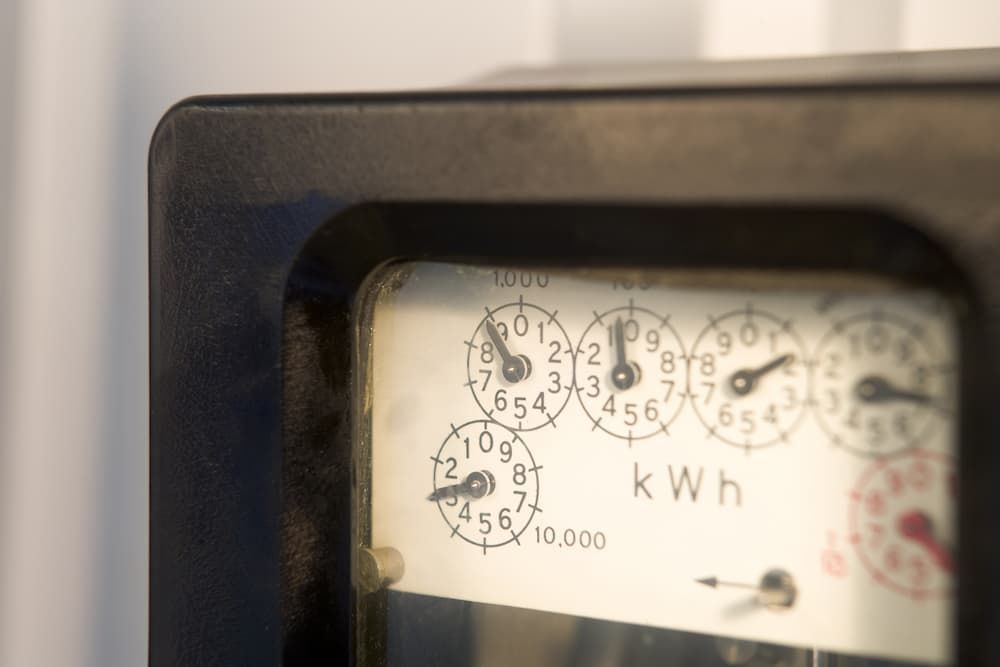Is Your Electricity Bill High?
Have you experienced electricity bill shock before? An expensive bill can occur for several reasons. In this article, we will explore why this might be happening and what you can do to fix the issue.
From seasonal changes in the weather to the number of members per household, fluctuations are normal in the electricity cycle. This means your electricity bill is bound to change. However, you can learn how to better manage some of the variables to decrease the fluctuation more effectively.
Why is my electricity bill high?
Here are three main causes:
- Actual energy usage in the home
- Issues with your energy bill
- Issues with solar PV panels (if you have any)
When you have a high electricity bill, you can feel ambushed. Oftentimes, people consider their high electricity bill was caused by an incorrect utility meter, a shady neighbour stealing power, a faulty appliance, or even an electricity leak. At Amber Electrical, we can tell you that these occurrences are extremely rare.
Here are some possible reasons why your electricity bill is high
Appliances
Appliances can be such a great add-on to your home. They can make or break a space. Yet, when it comes to their practical usage, they can easily lead to a high electricity bill. Whether old or new appliances, they might use more energy than you first realised.
The good news is that you can find out how much energy your appliances use at Energy Rating Government Calculator.
Let’s have a look at how appliances can impact your electricity bill. | 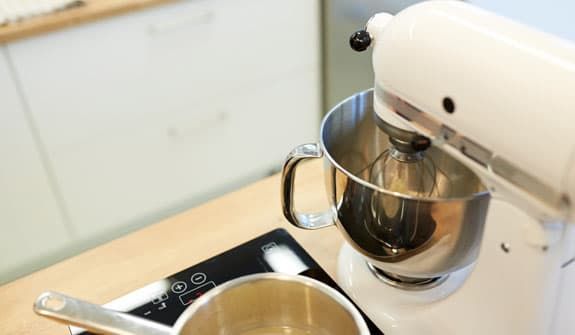 |
New appliances
Have you recently installed a new appliance? New additions to the home can be exciting but using a new appliance for the first time can impact your electricity consumption. For example, a new washing machine, when used regularly, will produce a change in energy usage. Thus, it can lead to a high electricity bill.
The energy usage will depend on the frequency and the size of the appliance. If you have recently upgraded an appliance, it might take a while before you recognise the energy impact the appliance has on your home. | Faulty appliances
With the passing of time, older appliances might become an increasing burden. They might require more energy usage to achieve proper functioning, or in the case of a stove or even a washer or dryer, they might require more energy to achieve the right temperature.
Let’s talk about the refrigerator. This is not only an essential appliance in a household, but it is also an appliance that requires high energy. Although most modern refrigerators are now more energy-efficient, an older model can be quite energy-intensive. If you have a surprisingly high electricity bill, it might be time to upgrade an appliance. |
Ducted air conditioning
Air conditioning can easily make up more than half of the electricity bill. Ducted air, specifically, might be one of the most frequent reasons for a high electricity bill, both for homes and businesses. Ducted air conditioning requires a high input power. This means that every hour they are on will pile on the overall electricity bill.
Ducted air conditioning systems consume 5kW of electricity in a regular household. In NSW, the cost of one kWh is about 24.66c, which might not seem like a lot on its own. However, when you multiply this by the number of hours per day, times the number of days a year, you have already accumulated a hefty amount for your electricity bill. The good news is that you can calculate the electricity usage per appliance.
In a similar vein, it is worth mentioning that ducted gas heating can be as energy-taxing as ducted air conditioning. They can consume natural gas or LPG rapidly, plus, they require electricity to power their air circulation fans. | Here are a few air-conditioning tips to lower a high electricity bill:
|
Electric water heaters
Electric water systems can account for almost one-third of energy usage levels in household settings.
Hot water systems, regardless of their kind, require an elevated level of energy. If there is a malfunction, the system usage can easily lead to a high electricity bill. A water leak, an extra-long shower or inefficient water fixtures can all impact the use of energy.
An electric hot water tank is common to find. It is important to note that pool and spa water heaters can also consume plenty of electricity. They are less common, nonetheless, their functioning might require up to ten hours per day of electricity usage.
Let’s explore some tips:
| 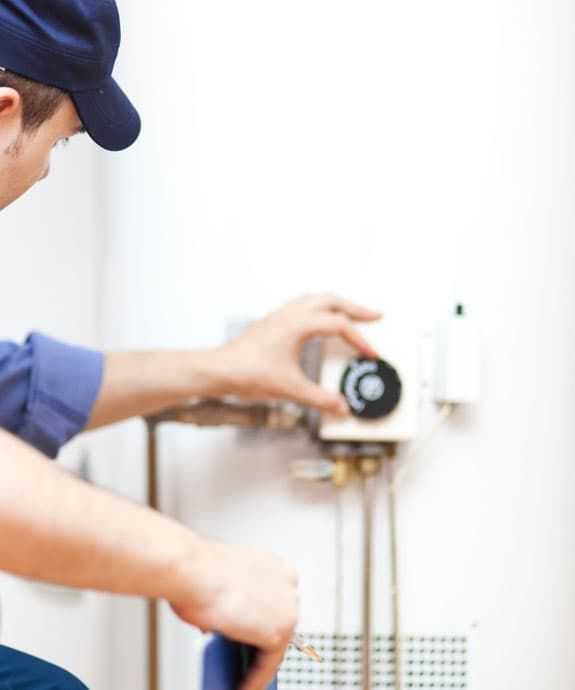 |
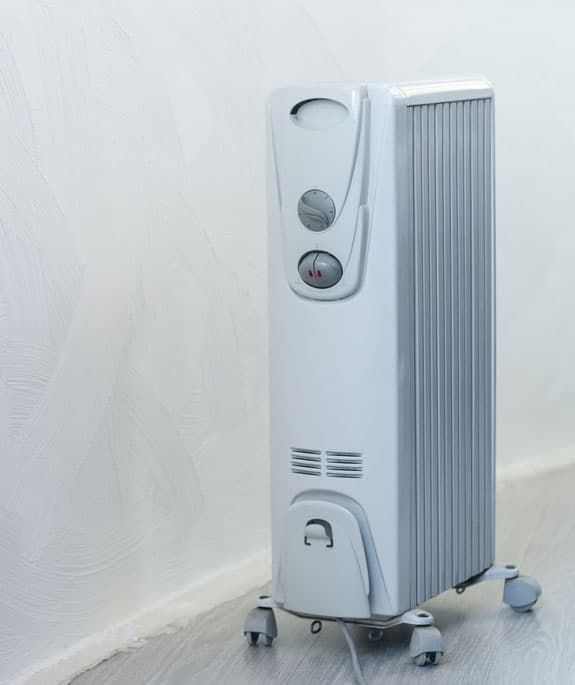 | Other electric heaters
Portable electric heaters might seem harmless. However, they can easily consume copious amounts of energy. You might receive a high electricity bill after frequent use of such an appliance. The good news is that this visible element can be easily controlled. The sad news is that heaters that remain invisible to the eye might be the worst heating culprit. Heated towel rails or underfloor electric heating or hydronic heating fall under this category.
But heaters are not the only appliance to watch out for. Clothes dryers can often use up to 5kWh of electricity, contributing to a high electricity bill. Also, electric or gas ovens, depending on their use, can often contribute to a high electricity bill (even impacting your gas bill).
Let’s explore some tips:
|
Ventilation fans
Ventilation or extractor fans are another appliance you must watch out for. Since they often sit beneath surfaces, in roof cavities or below the sub-floor, they can be a bit of an invisible drain. If your home has an “always-on” ventilation, it can often conflict with other energy-using systems. For instance, you might be trying to keep a room warm, but at the same time, the extractor fan is removing the warm air. This can indirectly cause more problems than solutions, leading to a high electricity bill.
Let’s explore some tips:
| 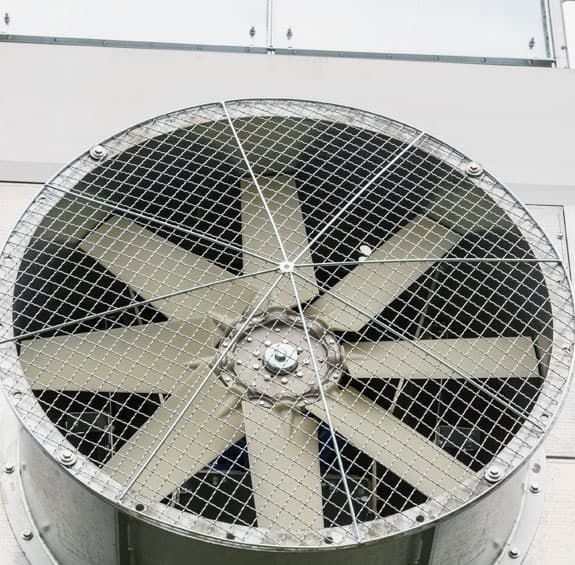 |
 | Water pumps
Do you have a pool in your home? It is now common for Australians to have a swimming pool in their home. Homes with swimming pools often have the highest electricity bills. One of the reasons for this is the pool filter pump. Often, swimming pool installers recommend the pump runs for eight hours per day. Let us assure you, this is not necessary in most cases. You can reduce the pool filter pump to decrease energy usage while maintaining the temperature of the pool.
It is not as common, but it is worth mentioning that irrigation pumps for your garden can often lead to a high electricity bill as well. Upgrading your irrigation pumps to energy-efficient ones is something to consider.
If you live in a large home, you might also have hot water reticulation pumps. The problem with this system is that it saps energy from the hot water system. In summary, any water feature in your home, whether a fountain or a fish tank, might require the use of an electric heater. In every case, opt for energy-efficient features where possible.
Let’s explore some tips:
|
Refrigerators
Nowadays, refrigerators are quite energy-efficient. So, when it comes to a high electricity bill, what creates the biggest impact is how many you have.
Let’s explore some tips:
| Lighting
Lighting tends to be one of the areas where you can save the most energy, especially in a household. Lamps and other light fixtures can now be replaced with LED lights. LED lighting provides up to 90% of energy savings.
Let’s explore some tips:
|
Solar panels
Solar PV panels are a great solution to reduce a high electricity bill. However, it is important to understand their capacity and performance, and how the panel works. That way, if there is a malfunction, you will be able to spot it easily!
Let’s explore some tips:
Bonus tip: Check your inverter once every quarter and write down the total figure. Once you have kept track for a year, you can compare the total to a solar output calculator to see whether the numbers fall within a fair range. |  |
Seasonal Changes
Changes in seasons can impact your electricity bill. In summer, you might consume a great deal of energy to keep your home cool while in the winter, you use energy to keep the home warm. The best way to combat a high electricity bill from seasonal changes is to keep an eye on the level of consumption. A clothes dryer is another appliance to look out for during these seasonal changes. Likewise, the use of hot water might impact your bill. |  |
Other potential causes
Are you having any renovations? Energy usage usually increases during these times. It is worth acknowledging that construction workers might not be the only visitors who come to your household. More people at home, whether visitors or even a newborn, means greater energy expenditure.
The age of your home, or a move to a new location, could impact your energy bill. Energy efficiency differs from place to place. Similarly, taking note of the length of your billing period will assist in determining the cost of a high electricity bill. Be aware that energy tariffs might also fluctuate from time to time. Look at your supply charge in your electricity bill as well. These costs can differ based on location.
A tip on your electricity bill: Ensure that the bill you are looking to is the actual bill as opposed to an estimated bill. It’s always better to track your energy usage. So, what can you do? Document your own meter readings. | Lastly, there is nothing like receiving a poor rate from your energy provider. Do your research when it comes to energy providers. This is one of the easiest ways to prevent your electricity bill from being high. Here are some things to look out for when selecting a provider:
At Amber Electrical, we are experts when it comes to electrical work. From looking to wire your entire home to other electrical tasks, we are ready to serve you with skilled craftsmanship.
|
What can I do about my high electricity bill?
Here are 8 ways to prevent a high electricity bill
1. Track your energy usage
While this might seem like the most obvious answer, it is often easy to miss. An energy monitor is a worthy investment to monitor your usage. In this manner, you can easily identify where to reduce consumption and where to save energy. At Amber Electrical, we can help you identify where you spend most energy. You can then choose how best to move forward with your energy expenditure. | 2. Check for discounts, concessions and even promotions
Whichever company sources your energy, ensure that you check eligible concessions as well as discounts. Often, companies will provide eligibility criteria on their website. Make a note to check the total costs of your bill. Discounts and concessions should always reflect on your bill. |
3. Use energy-efficient appliances and features
We have touched on this topic, but it is paramount to opt for energy-efficient appliances. Perhaps buying a new appliance might seem like a luxury, but when an appliance is leading to a high electricity bill, the costs are eventually higher. Other household features such as lighting and water features are also part of this equation. Watch out for the energy star rating when purchasing new appliances. This will save you both money and time. | 4. Monitor the temperature you set for your home
As we explored before, seasonal changes often require the cooling or heating of the home. You can set the thermostat below 20 degrees to reduce energy-related costs. It is worth mentioning that the use of hot water can often account for up to a third of energy consumption, and thus, of the total electricity bill. There are other strategies when it comes to water temperature. You can reduce the time spent on hot showers, for instance. For washing clothes, opt for cold water cycles. |
5. Go for home insulation
While this might be a larger adjustment, it is worth it to consider insulating your home. Insulation will preserve the natural temperature of your home. In this way, you can prevent a high electricity bill by reducing the consumption of energy via heating or cooling measures. | 6. Make use of the natural resources available to you
When it comes the natural environment, use of the natural ventilation and lighting can be a huge money saver. For example, during the warmer months, drying your clothes outdoors during daylight hours will inevitably prevent a high electricity bill. On the other hand, if you use the home’s conditioning system, ensure all air remains within the house to maintain its efficiency. Also, remember to turn off light switches and unused appliances where possible. |
7. Monitor the usage and settings on your appliances
While you might not realise it, standby appliances can create more energy wastage than you can imagine. With our current phone habits, for instance, it is common to leave the charger plugged into the power board. However, if you’re not using the charger, it’s an easy decision to unplug it.
On the other hand, some appliances might have some eco-friendly settings which can prevent a high electricity bill. This will help you save on electricity usage. | 8. Switch providers
Sometimes the best thing you can do is compare different providers and select the one with the best deals. Energy companies often change their prices, so you can often find a good deal throughout the year. At Amber Electrical, we can also help you set up home automation. This can assist in setting up timers and sensors to switch lights on and off, preventing a high electricity bill. |
When it comes to home automation or switching up the electrical work inside your home, it is always best to hire a professional electrician to do the job. DIY electrical and lighting installation is not a clever idea. Get the job done right. Bring on a qualified electrician so you know everything is installed properly.
The experts at Amber Electrical can help bring your electrical dreams to life – give us a call or contact us to get a free quote!

